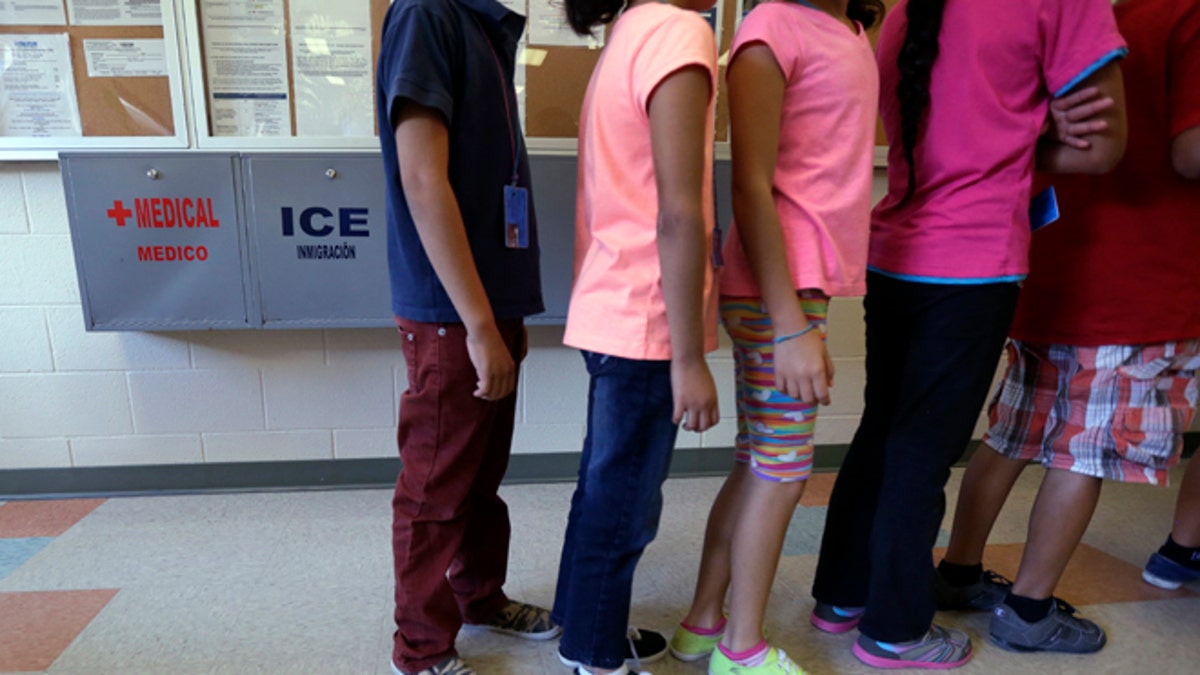
FILE - In this Sept. 10, 2014 file photo, detained immigrant children line up in the cafeteria at the Karnes County Residential Center in Karnes City, Texas. Karnes, one of the nation's largest detention centers for families caught crossing the southern U.S. border received a temporary residential child-care license from the Texas Department of Family and Protective Services. DFPS spokesman Patrick Crimmins said Tuesday May 3, 2016, the agency granted the six-month license last week to the facility. (AP Photo/Eric Gay, File) (ap)
In a victory for immigration activists, a judge in Texas has blocked one of the nation's largest detention centers for immigrant families caught crossing the southern U.S. border illegally from holding a temporary residential child-care license.
The licenses are needed because a federal judge ruled last year that, without one, the centers would have to release the children.
State District Judge Karin Crump signed a temporary restraining order Wednesday that blocks issuance of a license to the privately owned and managed 2,400-bed South Texas Family Residential Center in Dilley, Texas.
The order was sought by an activist group that opposes for-profit prisons. It is effective until May 13, when arguments are scheduled on a temporary injunction to halt the licensing indefinitely.
A spokesman for the Texas Department of Family and Protective Services, which issues the licenses, declined to comment.
The Dilley center is about 70 miles southwest of San Antonio. The activist group, Grassroots Leadership, also wants the judge to strike down a temporary residential childcare license issued last week to the privately owned and managed, 500-bed Karnes County Residential Center in Karnes City, about 50 miles southeast of San Antonio.
"Family detention camps are prisons. They are not child-care facilities," Bob Libal, executive director of the activist group, said in a statement.
The two family detention centers opened in 2014 in response to the arrival of tens of thousands of mothers and children from Central America. The license approval for the Karnes City facility came as apprehensions of unaccompanied immigrant children along the southwest border increased by 78 percent for the period from Oct. 1 through March 31 compared to a year earlier, and the number of apprehensions of families more than doubled.
Immigrant advocates criticized the licensure, citing reports of inadequate medical care and other issues as reasons why such facilities shouldn't get licenses.
U.S. Immigration and Customs Enforcement has indicated in recent months that it's looking to change how it houses families and children caught along the U.S.-Mexico border, possibly making changes at the Karnes facility. But ICE would not say earlier this week when it might make any changes. Instead, ICE spokeswoman Jennifer Elzea called the licensing of Karnes "an important step" in improving oversight and transparency of family detention centers.
Based on reporting by The Associated Press.












































